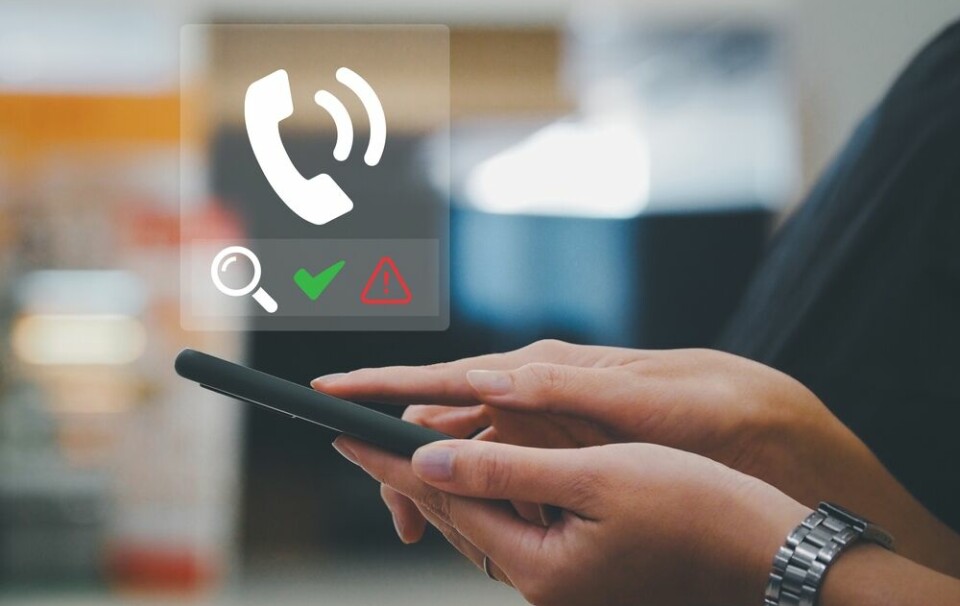-
The origins and meaning of tirer les marrons du feu
As Christmas approaches, we look at a phrase to describe someone who takes advantage of a situation
-
Three French regions at pre-epidemic stage for flu
Public health authority advises people to get vaccinated
-
Step back in time for some ‘dinosaur’ planting in your French garden
Captivated in the garden this month by one species of plant that dates back 200 million years, and another which is one of the oldest flowering plant families on the planet
'Réa’ and 'mocktail': Covid and English rule 2022 French dictionary
Le Petit Larousse has included a record-breaking 170 new words in its latest edition, plus a debate on whether it should be le Covid or la Covid

French dictionary le Petit Larousse has added 170 new words to its new 2022 edition, including English words such as ‘batch cooking’, and terms "immersed in the pandemic" such as réa and quatorzaine.
The 2022 edition will include the new words and definitions, which have been chosen to reflect current changes and trends in society.
They include a number of terms derived from English, including:
Batch cooking– From the English meaning ‘cooking in bulk’. Refers to the increasingly-common practice of planning your weekly food and cooking it in one kitchen session in advance. Intended to help save time overall and help users to eat more healthily.
- Click and collect – From the English for buying a product online and then going to pick it up from a depot or shop without having to go inside to buy or pay separately. Yet, the dictionary says this term is "not advised", and recommends the French term cliqué-retiré instead.
- Mocktail – From the English ‘mock’ meaning imitation, to refer to a non-alcoholic cocktail drink.
There are also many terms that relate to the Covid-19 pandemic, including:
- Cluster – From the English word, meaning ‘contagion outbreak’.
- Réa – A shortened, colloquial way to say réanimation, or intensive care.
- Coronapiste – A bike riding route, especially in towns, used during Covid-19 lockdown periods, that allows people to cycle while still respecting physical distancing.
- Quatorzaine – Isolation period of 14 days (but can relate to isolation periods of other durations) required by someone who has Covid, or contacts of someone who does. Related to the word ‘quarantine’.
- Télétravailler – Working from home.
- Nasopharyngé – Relating to the nasopharynx (the upper part of the throat behind the nose). Used in the context of taking cell samples using a nose swab.
- Zéro – As in ‘patient zero’, the first person to have been contaminated, with or without symptoms, in an epidemic context.
Read more: Improve your French: The mixed meaning of 'quarantine'
Le Covid or La Covid?
The new edition also includes Covid-19, with a discussion around its gender. It describes the term as both feminine and masculine, and says that “while the Académie Française recommends saying ‘la’ Covid-19, the use of the masculine [‘le’] is common”.
In Québec, Covid has emerged as feminine (la Covid) whereas in France, it has tended to be referred to as masculine (le Covid), despite the recommendations of the Académie, Larousse said.
Read more: Coronavirus is officially feminine
The new list also includes the term SARS-CoV-2, which it defines as an “English acronym of severe acute respiratory syndrome coronavirus 2”.
Record-breaking pandemic edition
Normally, around 150 words on average enter a new edition. This year’s 170 new words is considered record-breaking.
Bernard Cerquiglini, dictionary advisor and former vice-president of the Conseil supérieur de la langue française, told Le Figaro: “This year was rich in terms of meaning change. There have never been so many.”
One example is couvre-feu (curfew) which used to mean simply ‘covering the flames’ after a fire and then later was usually used in military contexts, whereas now it refers to staying at home.
Similarly, confinement used to have criminal connotations, as it previously only applied to “baddies”; Mr Cerquiglini said, and déconfinement had hardly ever been used before – he had found one reference related to a nuclear power station – he said.
These have, of course, since come to describe the changing states of Covid-19 lockdown.
Carine Girac-Marinier, director of the dictionaries and encyclopedias department at Larousse, said: "This is obviously an edition completely immersed in the pandemic. Each vintage has a particular flavour linked to the changes in society. The French language and Le Petit Larousse reflect this evolution.
“And what is fascinating, is that during this health crisis, language has been extraordinarily dynamic. There have been very few anglicisms, and a lot of new words. This is the first time that we have, to this extent, new words linked either to the medical sphere or to medical consequences in our society.”
In particular, the French use of the word confinement is proof of the language’s tenacity, compared to, say, Italian, which uses the English word ‘lockdown’ with no real Italian equivalent, Mr Cerquiglini said.
Mr Cerquiglini said: “In any period of crisis, language moves. We saw this during the French Revolution or the Second World War, for example.
“But since March 2020, it has been even more spectacular. There has been a [real] movement in the language, which can be seen in the arrival of new words in usage and in the dictionary.”
Other notable words in the 2022 edition include émoji – an electronic, graphic representation used to express an emotion, from Japanese; and nounounerie – a colloquial, informal way to describe something silly or stupid, from Québec.
Related stories
Improve your French: The mixed meaning of 'quarantine'
Faux-amis: Avoiding language traps in French
French linguist Alain Rey dies aged 92
























